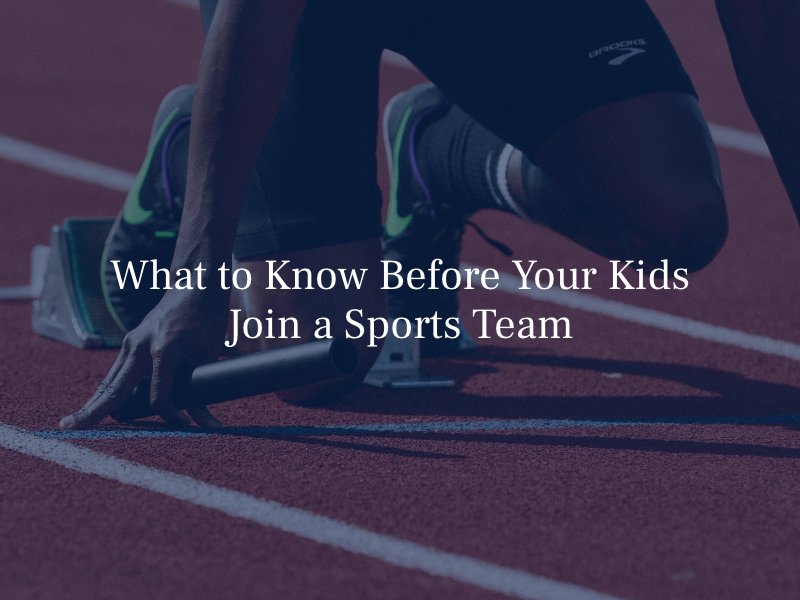Brain & Head Injuries in School Sports – What to Know Before Your Kids Join a Sports Team
October 30, 2022 Posted In Brain Injuries
If you are considering or have signed up your kids to join a sports team, it is important to know there is a risk of a head or brain injury. Brain or head injuries can happen to kids of any age, and here are a few things to keep in mind.

Brain or Head Injuries Can Occur in Any Sport
Brain or head injuries are possible in any sport but are more prevalent in football and soccer. They are typically caused by a bump, blow, or violent jolt to the head. The most common type of brain injuries reported are concussions. In school sports, they often happen from a fall or when players collide with each other, the ground, or obstacles, such as a goalpost. For example, helmet-to-helmet contact in football or improper tackling techniques, and improper heading techniques or arm-to-head contact in soccer.
Know the Signs of a Brain or Head Injury
Brain or head injury symptoms can be unpredictable and hard to detect. Many mild brain injuries, like concussions, actually go undiagnosed since symptoms may not be immediate and can sometimes show up days or weeks later. Therefore, knowing the signs of a brain or head injury is critical.
| Signs Observed by Coach or Parent | Symptoms Reported by Player or Noticed by Parent |
| Appears dazed or stunned | Headache or pressure in the head |
| Confused about assignment or position | Nausea or vomiting |
| Forgets an instruction | Blurry or double vision |
| Unsure about the score, opponent, or game | Sensitivity to light |
| Clumsy or loss of coordination | Sensitivity to noise |
| Answering questions slowly | Feeling foggy, hazy, groggy, or sluggish |
| Loses consciousness (even briefly) | Problems with memory or concentration |
| Unusual changes in mood, behavior, or personality | Confusion |
| Can’t remember events leading up to and/or after the hit or fall | Not feeling “right” or feeling down |
Other signs or symptoms of a brain or head injury can include swelling of the scalp, seizures, dilation of one or both pupils of the eyes, clear fluids draining from the nose or ears, weakness or numbness in fingers and toes, unusual agitation or combativeness, slurred speech, change in sleep habits, looking very drowsy or not waking up from sleep. Seek medical attention for your child immediately after any blow to the head, especially if you notice any of the above symptoms.
How To Prevent Brain and Head Injuries in School Sports
Regardless of the sport, the following prevention strategies should be utilized by parents, coaches, and players:
- Wear the right protective equipment for the sport (e.g., helmets, padding, shin guards, eye and mouth guards, etc.).
- Protective equipment should fit properly, be well maintained, and worn correctly and consistently.
- Avoid head-to-head, arm-to-head, or foot-to-head collisions with other players.
- Coaches and referees alike should enforce all rules of fair play and sportsmanship.
- A player who suffers a head injury, must be taken out of the game and evaluated by a physician before returning to play.
Many brain injuries heal within a few days or weeks. However, the possibility of long-term problems and complications increases with repeat or severe brain injuries. If your loved one has suffered from a brain injury, our Riverside brain injury lawyers can help answer your questions and provide the legal counsel necessary for complicated cases like this.